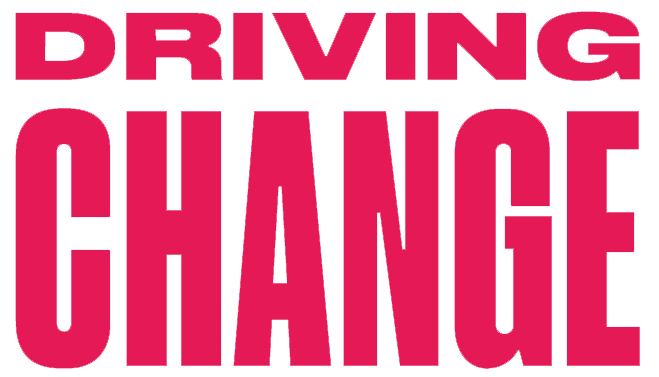“Politics is basically how we as a society decide to set the rules and solve our biggest issues,” says Damian Boeselager, a 33-year-old member of the European parliament (MEP) who has represented pan-European party Volt since 2019. Together with two friends, Boeselager co-founded Volt Europa the same day the U.K. formally announced its intention to leave the EU almost 5 years ago. Today the party is represented by over 70 elected officials at local, national, and European level and it is active in 29 European countries.
Sadly, Boeselager’s success is the exception rather than the rule. Recent OECD statistics highlight the degree to which young people are underrepresented in parliaments across the developed world. In 2020, 22% of OECD (Organization for Economic Co-operation and Development) parliaments (MPs) had members under 40. In comparison, 20- to 39-year-olds represent 34% of the voting-age population in these countries. This is an average representation gap of more than 12 percentage points. Some of the largest gaps are found in the United States (-25%) and Australia (-24%).
The differences are even more pronounced within political leadership. In 2018, only 3% of the incumbent cabinet members across the OECD, were 35 or under. Perhaps this is why A 2020 OECD report, Public Governance Review for Youth, Trust and Intergenerational Justice, found that since the global financial crisis, young people’s trust in public institutions, along with their perception that they have political influence and representation, has stalled.
If you know the issue that you want addressed and that power lies in politics, why dance around it?
“Politics is just not much on people’s minds,” is how Boeselager puts it. He admits that prior to co-founding Volt, he never considered joining a political party, neither did anyone in his wider circle. Brexit changed that for him and his co-founders. When the U.K. decided to leave the EU, he felt that the society in which he was living was “disintegrating,” emotions that were then reinforced by the rise of nationalism across Europe and the election of Donald Trump in the United States.
Initially, the young parliamentarian considered starting a think tank. But soon realized that a think tank wasn’t going to get to the root of the problem. Activism did not appeal either. “If you know the issue that you want addressed and that power lies in politics, why dance around it?” Political parties pay attention to the loss of votes, he explains. There is nothing so powerful as saying, “Look, I’m stealing your votes because you are not addressing my concerns regarding the future of Europe.”
Volt’s first national party formed in Hamburg, Germany in 2018. That was the year Boeselager won a seat at the European Parliament (EP) with 0.7% of the vote and when Volt joined the broader Greens–European Free Alliance group.
Volt Europa has expanded since then and has local teams in every EU member state and is registered as a legal party in seventeen member states including Germany, France, Italy, Spain, and the Netherlands.
In 2021, Volt Netherlands won 2.4% of votes at national level, giving the party three seats in the Dutch parliament. Volt Bulgaria recently won at least one seat in April’s parliamentary elections. Volt Scotland formed an electoral pact with Renew Scotland in the 2021 Scottish parliamentary election. It also campaigns in Britain for the U.K. to re-join the EU. Volt Co-president, Reinier Van Lanschot, confirms that 70% of Volt supporters are under 35. 20% are above 60 and just 10% are between 35 and 60.
For Boeselager, the solution is clear, “Let’s use this system to fight for the things we care about.” The first step is simply to recognize that if one gathers enough people with similar ideas and becomes active – one can change things. Registering a political party across different European countries takes sustained action. Portugal requires 5,000 party member signatures to register a political party; France requires parties to pay 50,000 euros for their own ballot paper and Volt Romania has recently been registered after a 4-year legal battle.
Look, I’m stealing your votes because you are not addressing my concerns regarding the future of Europe.
Starting a political party is clearly not for the faint hearted but this young German politician is positive, “We do not have to be passive recipients of old entrenched systems.” To this end, Boeselager is currently involved in negotiating changes to the European electoral law act. He wants to ensure minimum democratic standards are in place across all EU member states for establishing and running a political party.
The young MEP is also concerned about the issue of migration. He recently returned from a visit to the migrant camps in Greece and is concerned about the EU’s current “non-system” when it comes to migration policy. Boeselager feels strongly that there are some problems that can only be solved with an EU-wide solution. Migration is one of them. “I never had an EU flag in my house, but you don’t need to be emotionally attached to it to understand that everything else is just bullshit.”
However, he continues to see a role for the nation state. “This either/or approach is also idiotic.” The problem as he sees it, is that national interests simply take too much priority within the EU institutions, including the EP. Volt’s theory of change is based on the idea that if they gain enough support at national and local levels across Europe, they will force national parties to take a more Eurocentric approach. This, Boeselager believes, is why the Germany Green party included the idea of an EU federal republic in their manifesto for the recent national elections.
For all those young people who want to become more politically active, Boeselager has the following advice: find the political party that is most aligned with your area of concern and simply write them an email. Don’t wait. Overcoming that feeling of powerlessness and focusing on action rather than ideology is the way forward.
